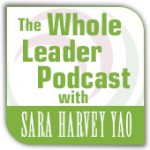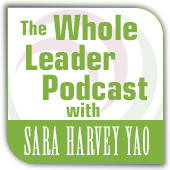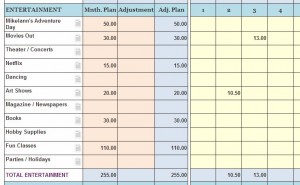 A few years ago, while I was looking at my spending plan and worried about both the amount of money I needed to spend on holiday gifts, as well as the time it would take, I started to wonder. Why do we keep doing our gift exchange the same way – even when it causes us to stress out and sometimes break the bank?
A few years ago, while I was looking at my spending plan and worried about both the amount of money I needed to spend on holiday gifts, as well as the time it would take, I started to wonder. Why do we keep doing our gift exchange the same way – even when it causes us to stress out and sometimes break the bank?
I come from a large family, and we have had the same gift giving ritual for decades. Each person takes a turn opening a gift while everyone pays attention. The gift may cost only ten dollars, but everyone watches. It was a way to spend time with each other, and that was very important to my family (especially my mom).
As I thought about the ritual, I started to wonder what was most important about it. Was it that we all received a lot of gifts, or that we all spent a lot of money on each other, or was it more about spending time together as a family? I took a gamble that it was the last option, and decided to start a conversation.
I was nervous about emailing my sister and my mom – would they forgive me for poking this sacred cow? Would they understand? I knew they might need a lot of time to think about a change like this, so I brought it up in mid-November.
When I emailed about our Thanksgiving plans, I mentioned that I’d love to talk about shifting how we exchanged holiday gifts while we were all together on Thanksgiving Day. I was relieved when my sister sent me back an immediate, enthusiastic reply. My mother chimed in: “Well, if we’re going to give fewer gifts, you guys have to promise you’ll play some games on Christmas because I want to make sure we spend enough time together.”
Success!
Now, I needed to come up with some suggestions that would be fun, allow my family to still have lots of face-time, and wouldn’t break the bank. Here are some ideas I came up with that you and your family can ponder as well:
Gift limit. This is the obvious one, and many adults welcome it. What if there was a predetermined limit, so you knew you were supposed to bring one gift (not two or three) for each person?
Drawing names is an oldie but goodie. On Thanksgiving everyone puts their name in a hat and then draws a name out. It is very important to set a limit on how much everyone can spend.
Give a family gift instead of individual gifts. It depends on how many people are at your gathering, but your extended family may welcome this idea.
Decide to only do gifts for children.
Edible gifts. Decide to only gift things that are edible or drinkable and set a price limit. Adults love this one.
Play White Elephant. This is a very fun and silly game that doubles as face-time with everyone. When I was growing up, this is what we played at the extended gatherings that had 30+ people. (Yes, I come from a large Catholic family.) If you have never played, the rules are simple: everyone brings one wrapped gift with no name on it – the more ridiculous the better (re-gifted or “found” treasures are appreciated). Then you draw numbers and the game begins. This game involves a lot of shouting, running, trading, and laughing. And spilled drinks.
Dollar Store stockings. These days, I have noticed that “stocking gifts” have gotten a little out of hand. So one idea is to say that stockings can only be filled with items from the Dollar Store. (Okay, this one doesn’t fit my list perfectly, but the whole insanely-expensive-gift-in-the-stocking thing drives me crazy.)
Well, I am guessing you know how this one ends, but I will go ahead and finish my story. My family and I talked about it on Thanksgiving, and we came up with a new tradition. We have done it for a few years now, and everyone really loves it. We can all spend a little less, and enjoy the season (and each other) a little more.
The holidays don’t have to be a huge “production” or be so expensive that you are paying them off until it is time to go shopping again. This is a time to be with friends, family, and (perhaps most importantly) yourself. Now that’s real holiday magic.
BONUS: If you want to email your family right now to get the brainstorm going, but don’t know where to start, here is a sample email:
Hello loved ones!
Can we reconsider how we do holiday gifts? I know we are all busy, and the costs keep mounting. This year, I would love it if we could change things up a bit. I thought through some ideas that could save us all time and money (while maximizing our time together) and here is what I came up with [insert one to three ideas here].
What do you think? Let’s discuss at Thanksgiving.
P.S. My colleague Karen McCall wrote an amazing post on how to have a joyous and debt-free holiday. She covers not only how to do a holiday spending plan, but also helps you examine your feelings and beliefs about the season to see how they impact your behavior. Check it out: The 10-Step Plan to Have a Joyous and Debt-Free Holiday Season (financialrecovery.com)
Downtime during the holidays or after Christmas? I just put up my resources and store page.
Want more help transforming your relationship to money? Check out all the eBooks, audios, and more robust products Mikelann has created. Are you ready to break free of the “money fog” and step into earning what you are worth? Are you are ready to get in touch with your emotions so you never feel out of control around money again? Are you ready to love your financial life? Let Mikelann help you get there. Free items are at the top of the page.






 Sara Harvey Yao, a national executive leadership
Sara Harvey Yao, a national executive leadership 



 1. Set a timer. After you have shopped for 90 minutes, you tend to go into a zone- and you spend more mindlessly. You zone out. Malls encourage this by hiding the passage of time. They don’t post clocks or have a lot of windows. This way you don’t know how much time has passed. So simply set a timer on your phone for 90 minutes. When it goes off, sit down and have a cup of tea. You don’t have to go home. Just take five minutes to relax and assess where you are, what you’ve purchased and what else you want to do.
1. Set a timer. After you have shopped for 90 minutes, you tend to go into a zone- and you spend more mindlessly. You zone out. Malls encourage this by hiding the passage of time. They don’t post clocks or have a lot of windows. This way you don’t know how much time has passed. So simply set a timer on your phone for 90 minutes. When it goes off, sit down and have a cup of tea. You don’t have to go home. Just take five minutes to relax and assess where you are, what you’ve purchased and what else you want to do.
